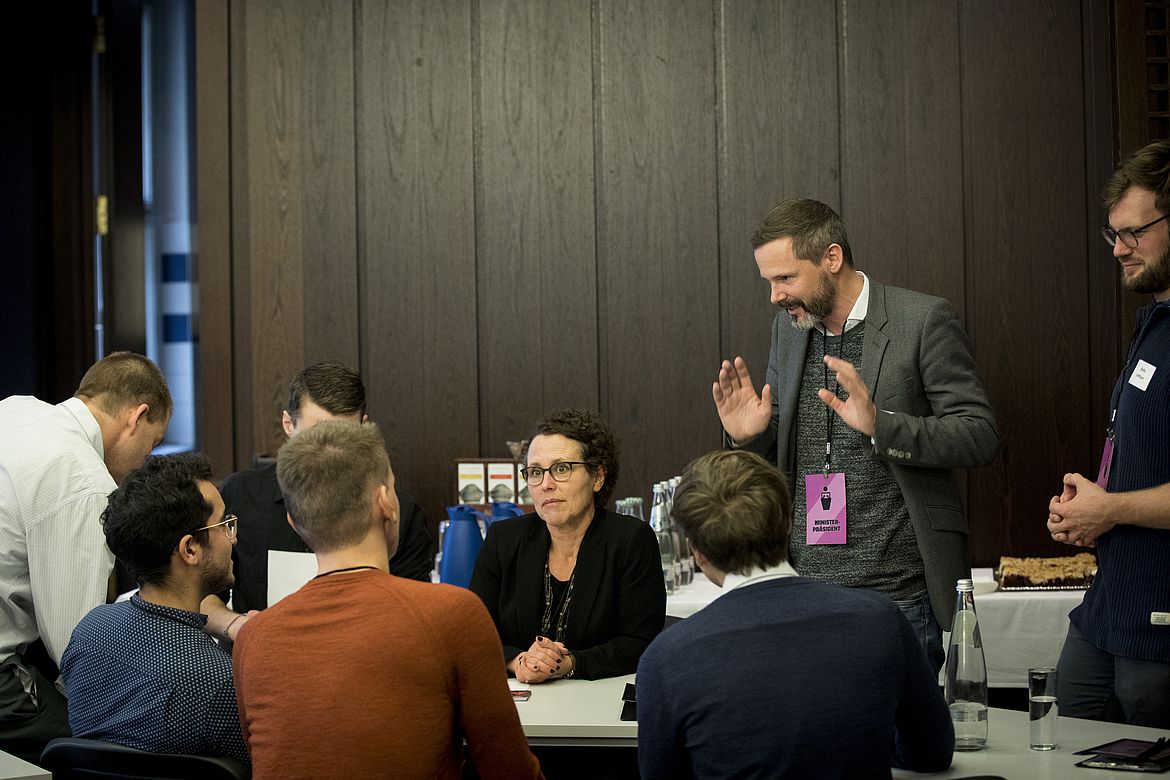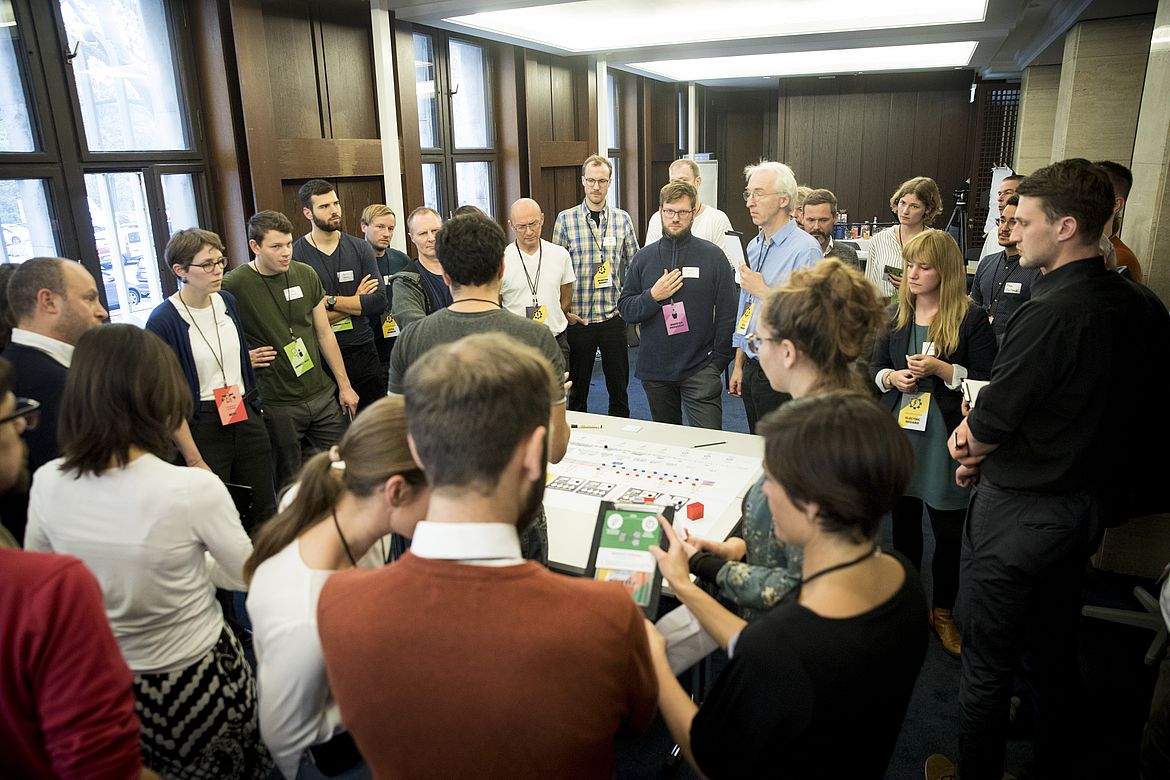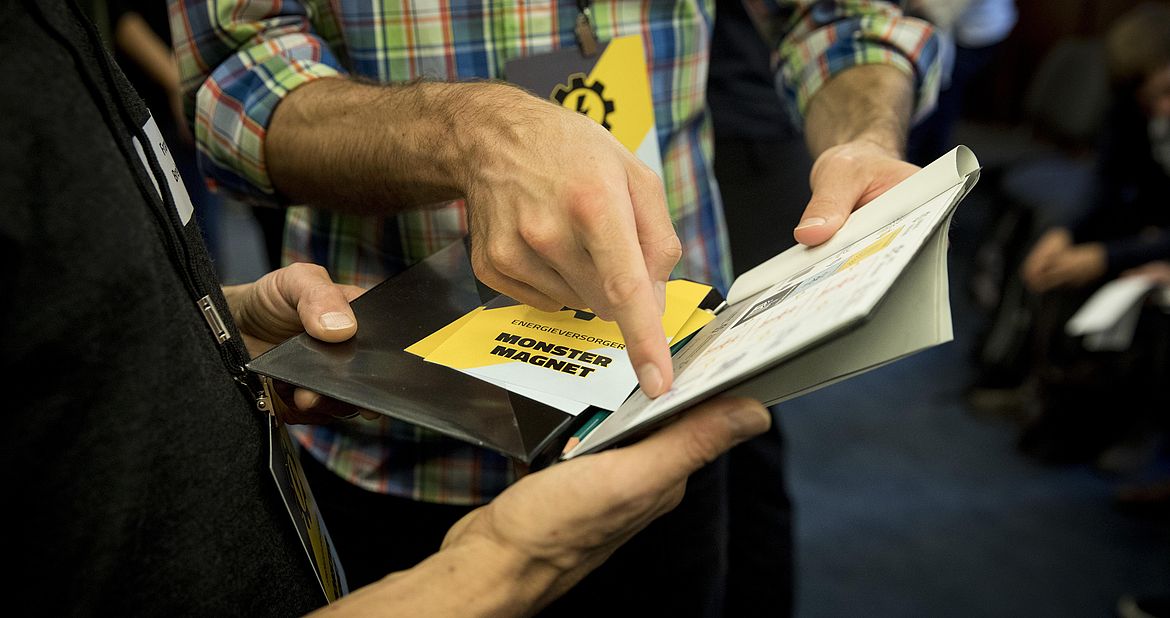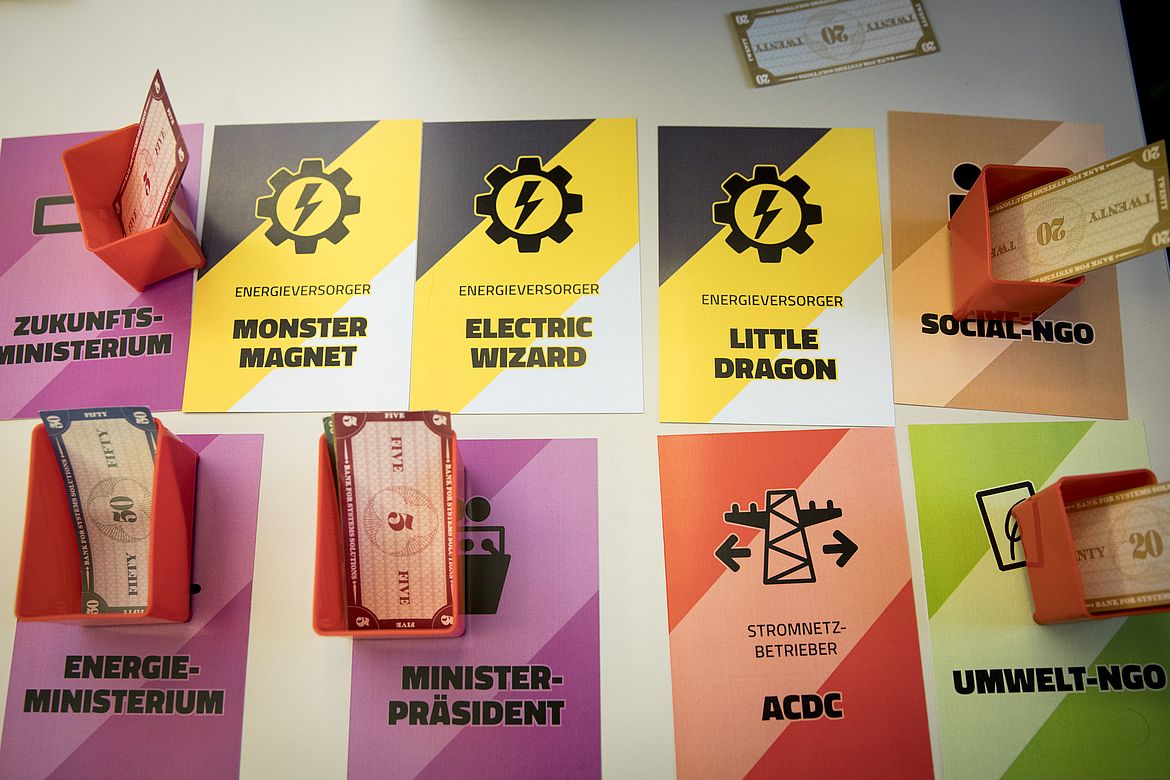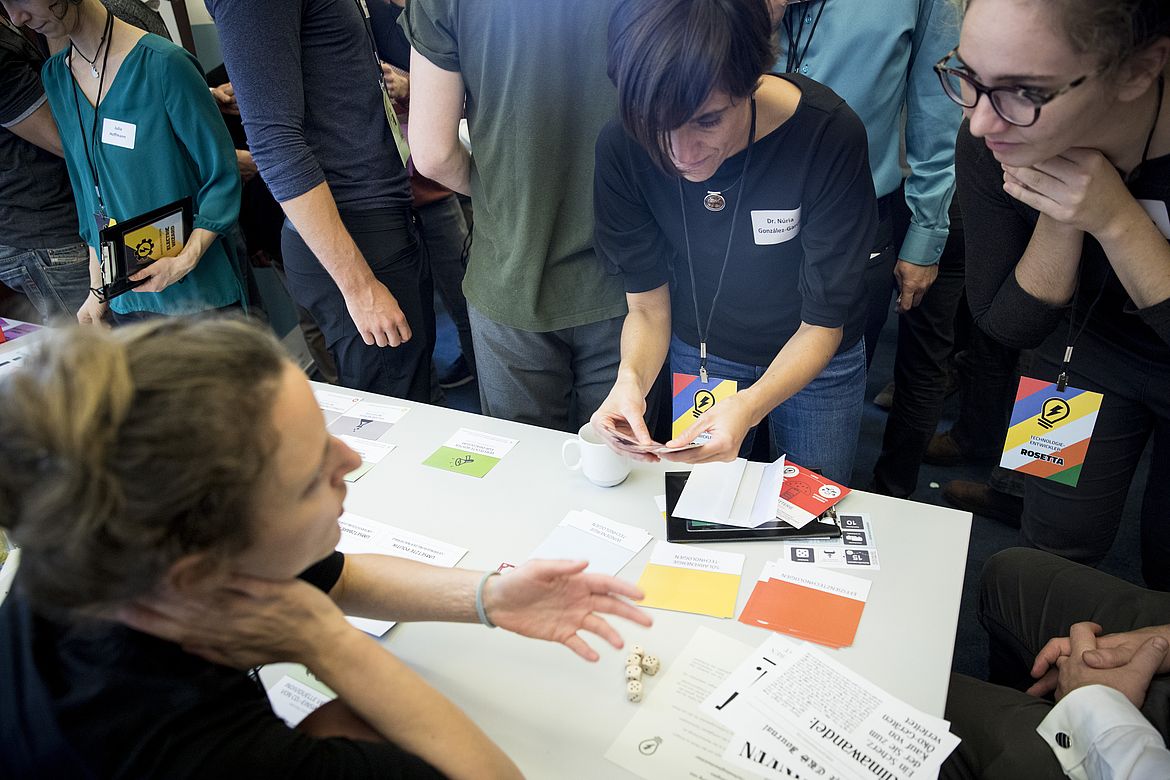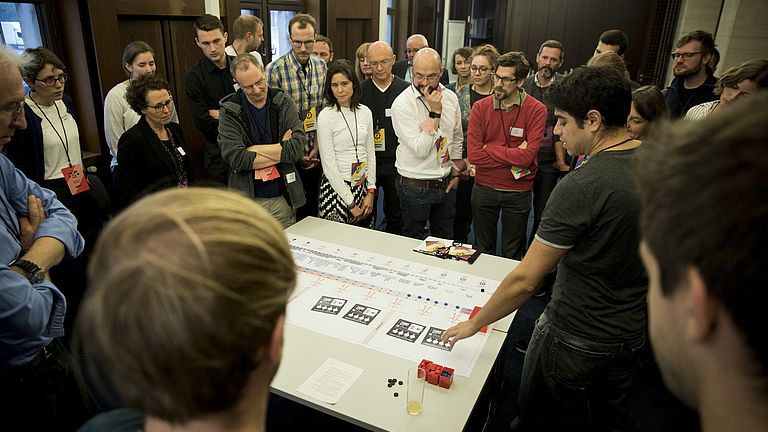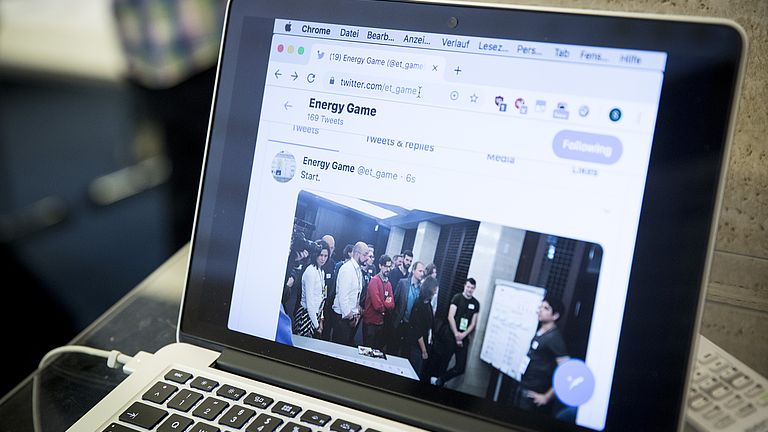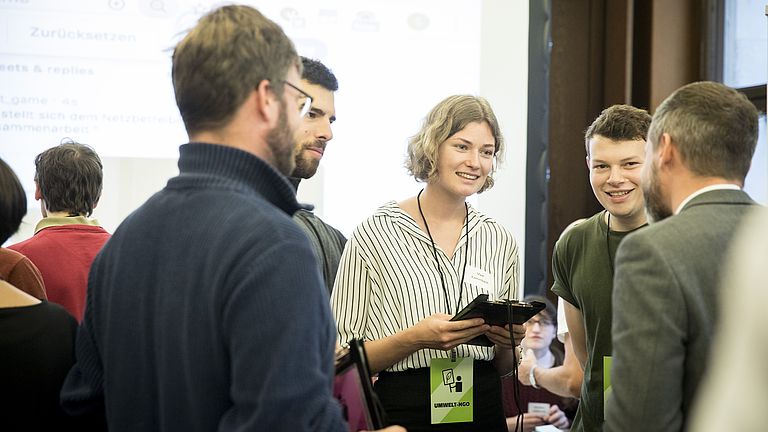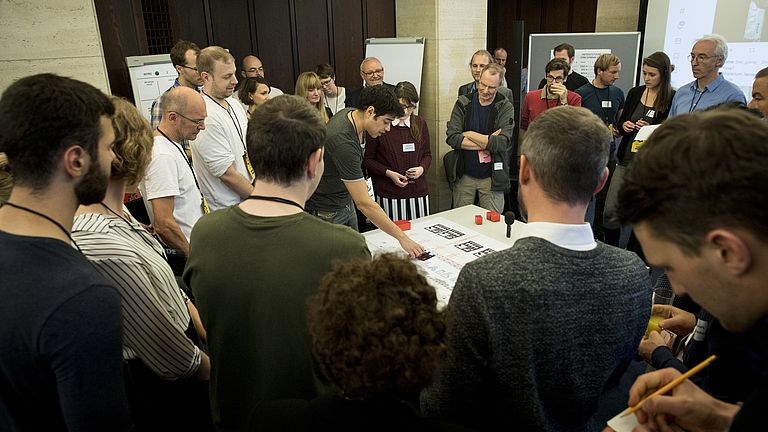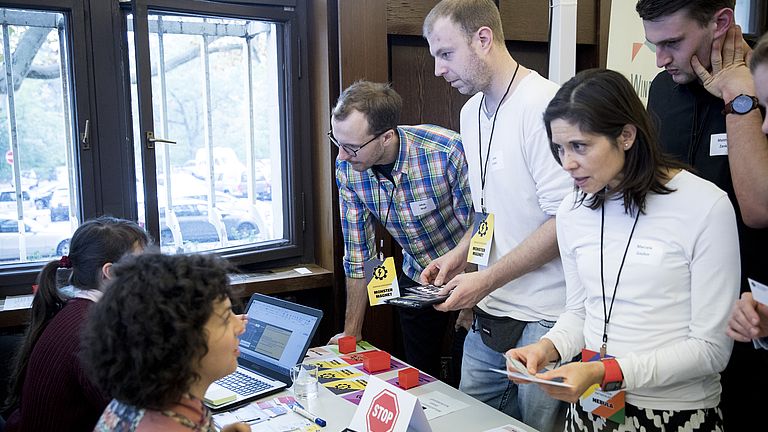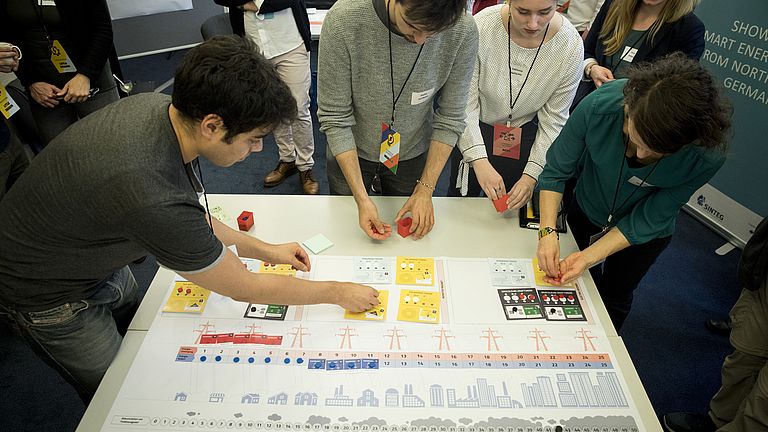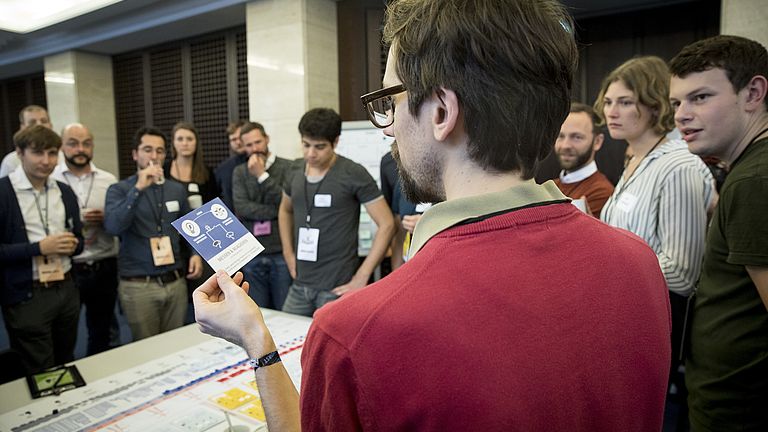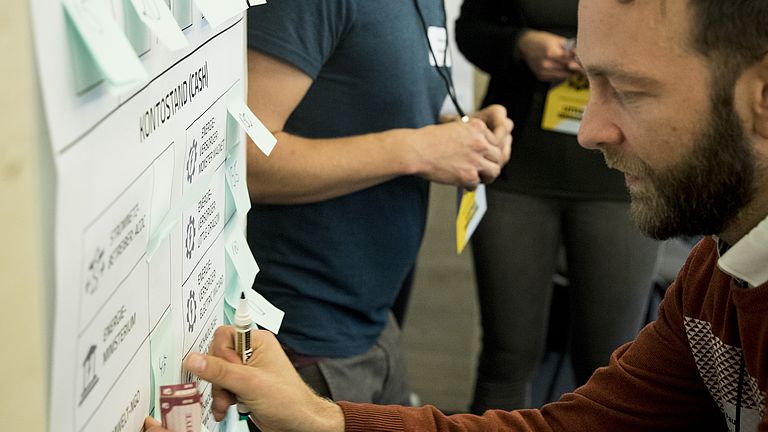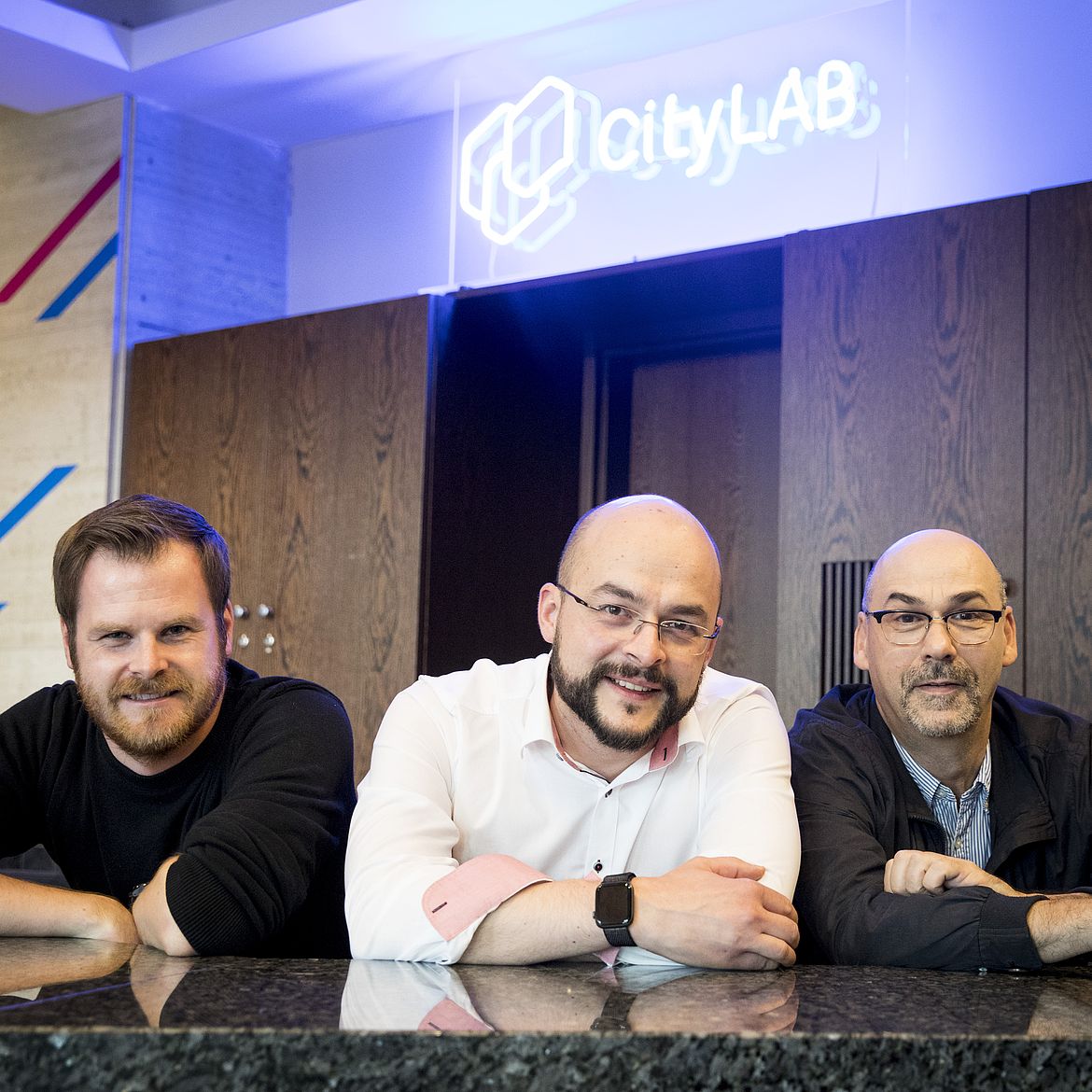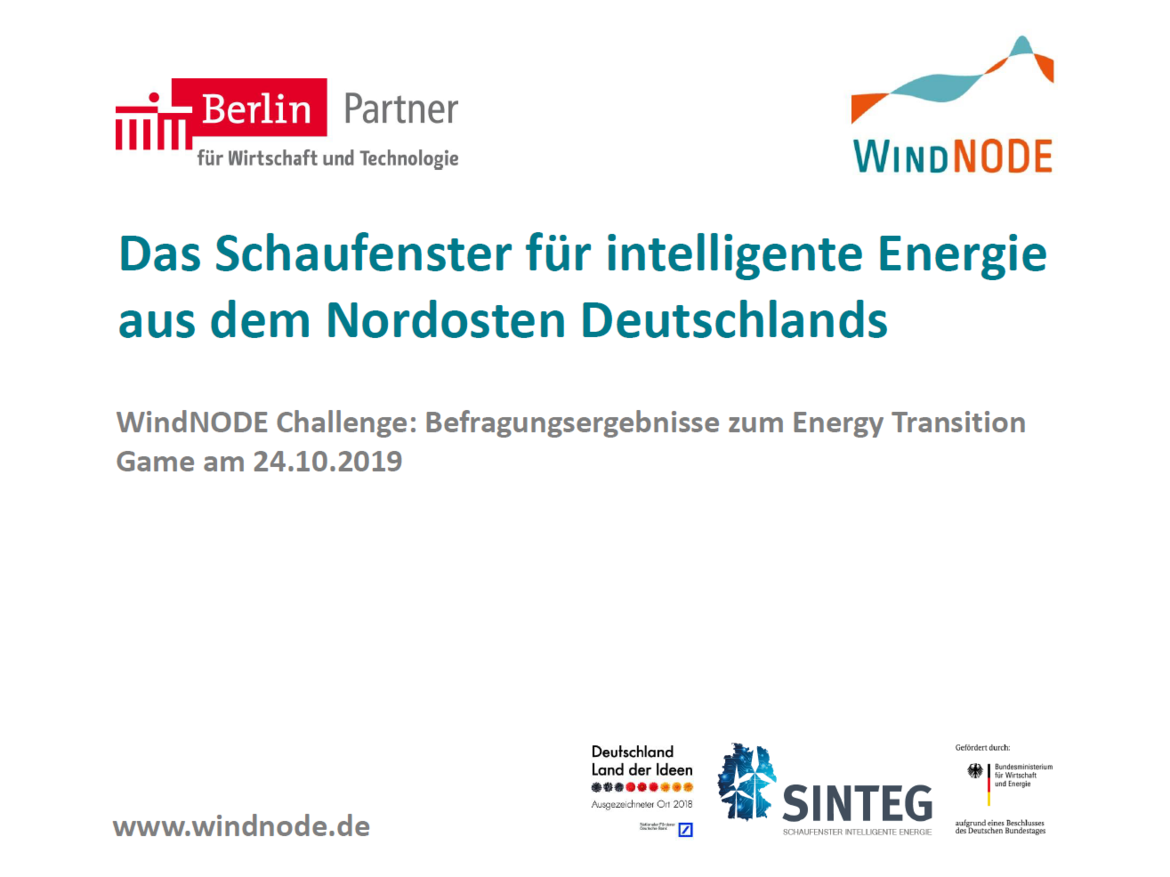“No one said it was going to be easy!”
How do we get society involved in shaping the energy transition? In the WindNODE Challenge, Berlin Partner for Business and Technology is testing ‘serious gaming’ as a social simulation of the energy transition. The participants slip into new roles and experience something entirely unexpected.
It does not look good for the Minister-President. The public approval rate is down to 12 percent. His key project, the energy transition, is a fiasco. The CO2 emissions are through the roof, and in order to repair the damage to the climate, he has to spend the majority of his budget for failed harvests and dike repairs. The corporations whose support he needs, always commit themselves to climate protection. At least, when it suits them. The rest of the time, they are worried about their balance sheet and walk all over the head of government with their demands.
On Thursday 24 October 2019 at 12:58 o’ clock, the Minister-President pulls the emergency break. Red spots in his face show how tense he is. His Ministers for Future and Energy have to stand next to him during the press conference. The word “expropriation” had already leaked in advance. Then he announces: “The cabinet has decided to nationalise the system operators and...” The rest of his speech is drowned out by both mocking jeers and shouts of joy, and goes viral on Twitter. It is only a game, but the commotion is real.
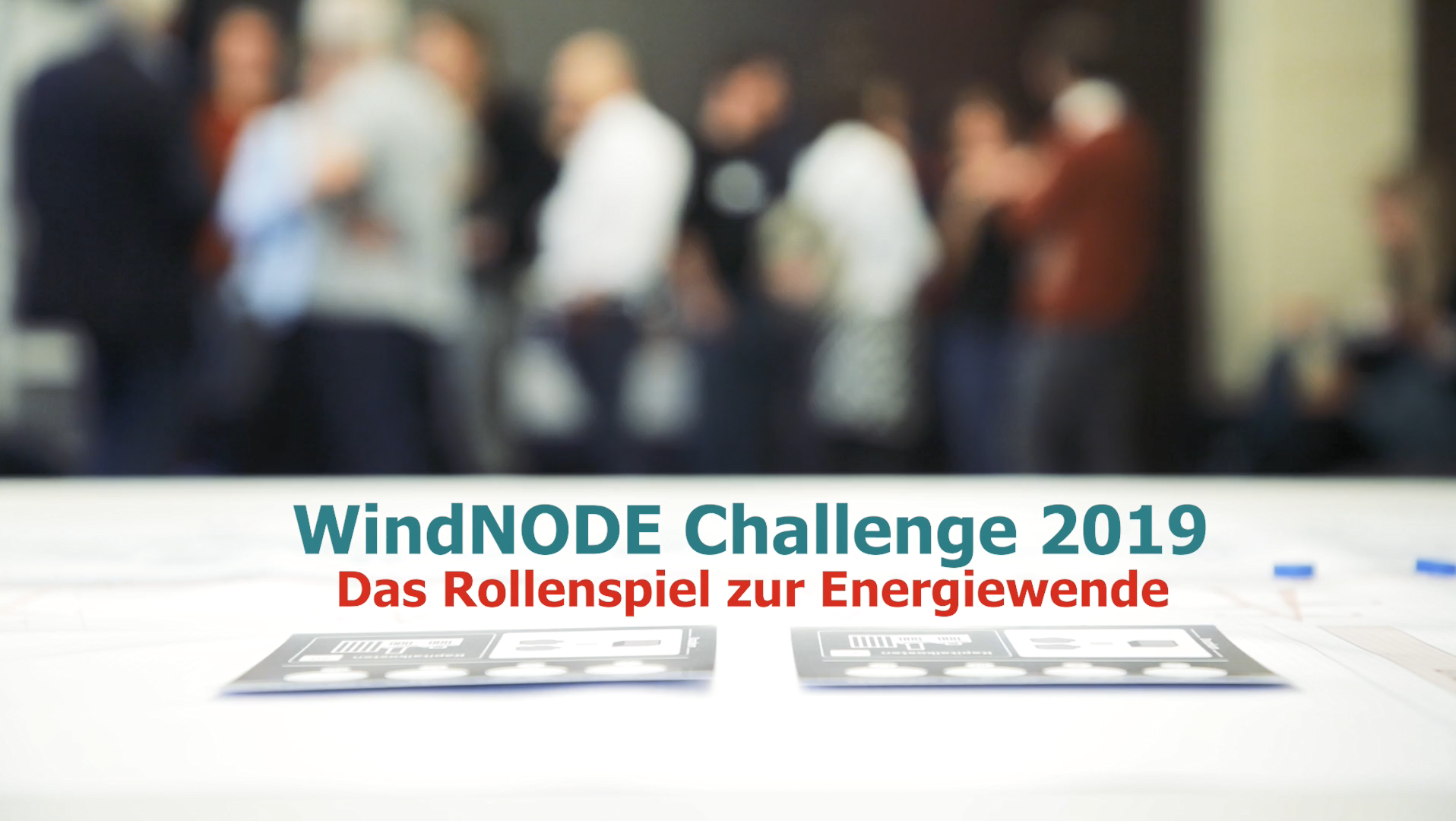
▶ Play
The YouTube video will only load and play after clicking. By clicking the video, you agree to Google's Privacy Policy.
One of the youngest becomes Group CEO
Wolfgang Korek, in charge of energy technology at Berlin Partner, puts the role-players to work with the classic phrase: “Let the games begin!”
Firstly, the Energy Transition Game, developed by the Centre for Systems Solutions and think-do-tank thema1, is an analogue role-playing game with a computer in the background that analyses the players’ scores with algorithms and calculates the status quo after each round. The players become energy producers, system operators, tech start-ups, ministry representatives and environmental and social associations: the stakeholders of the energy transition. Round after round, an assessment is made: is there a blackout in the power grid because generation and consumption do not correspond? Do we still have money in the public purse? How fast are the CO2 emissions rising?
At the start, all show themselves willing to reach a consensus through cooperation and partnerships, but the fault lines can already be seen early on.
Just three hours ago, these deeply troubled Ministers, Presidents and company directors entered the old officer’s mess in Berlin’s Tempelhof airport as friendly civilians. Berlin Partner for Business and Technology invited them for the WindNODE Challenge: some 35 women and men, disseminators of organisations, associations and universities; employees at companies such as Stromnetz Berlin, Siemens, Gasag as well as from Brandenburg’s ministries, Berlin’s district offices, energy agencies or the VDI, the Association of German Engineers. But also students, artists and social education workers came down to Tempelhof.
Why? “In order to step into the role of a company,” says the employee of the Ministry of Economic Affairs of Brandenburg. This morning, a Vattenfall employee assumed the role of an environmental association, and the student volunteering for an energy transition foundation looked forward to being Group CEO in the Energy Transition Game of the 2019 WindNODE Challenge.
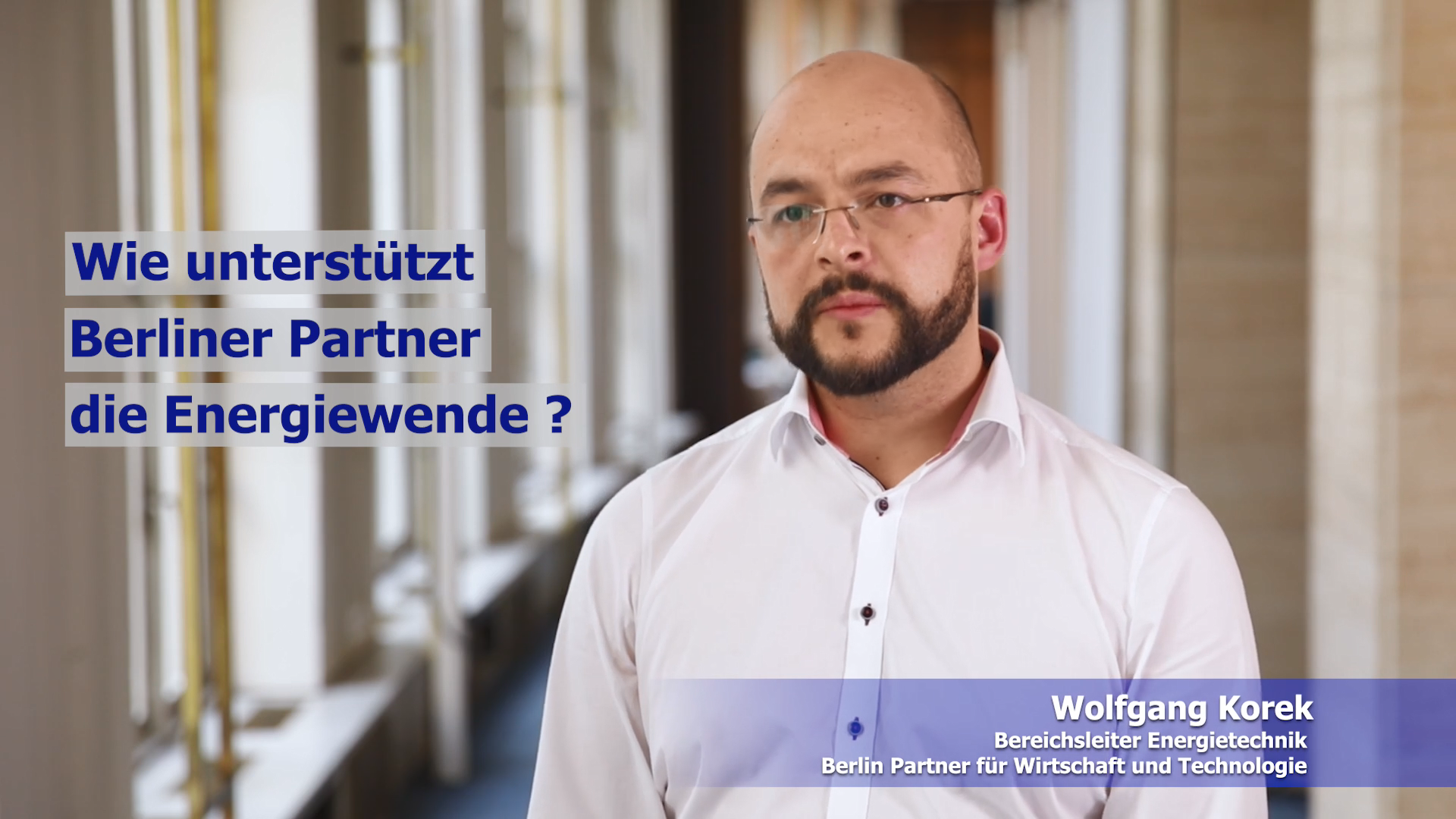
▶ Play
The YouTube video will only load and play after clicking. By clicking the video, you agree to Google's Privacy Policy.
"The electricity price shouldn't rise,” say the representatives of the social associations, who close in on the representatives of the Ministry of Energy from the very start. “That is our concern as well,” claims the Ministry of Energy, eager to keep the social peace. But the social association quickly finds out that the ministry workers do not want to commit to anything. Deep down, both know: the fuel called “dracoleum”, as the CO2-intensive fuel is called in the game, may be the cheapest way to generate electricity, but due to climate change, the dracoleum-fired power plants are not sustainable. Solar and wind power have to be exploited, energy research has to be subsidised, storage solutions need to be developed and old power plants need to be shut down. All of which comes at a price. And once again, the taxpayer has to cough it up.
Man is only fully a human being when he plays
The game has only begun half an hour ago. But all these polite people have long switched from greeting mode to battle mode and have become one with their role, or at least: the stereotype they have of the role. The Minister-President wants to be popular, the environmental and social associations express their indignation about the situation of the working class or about climate change; the energy producers, system operators and start-ups are unabashedly money-hungry.
No wonder: each wants to obtain the largest advantage for the group he or she represents. There are rules of play and role descriptions, but some players are swamped with their tasks. “I don't fully understand it all yet,” admits the student volunteer and goes looking for fellow players, a draft task list in hand. Most had pictured a successful energy transition differently: simpler, somehow.
Lack of perspective is part of the game
Overwork and intransparency increase as the simulation becomes more complex. “Just like in real life,” as the game master puts it. In the real energy transition, too, the players hardly know what the others were planning and doing, while each has a public and a private agenda. There is no set timetable and the rules are often not fixed, but man-made and constantly changing. Companies and associations complain that their own opinions fall on deaf ears. “Today, this constant dealing with uncertainties is the most important lesson,” says Wolfgang Korek of Berlin Partner. Many experts would mainly consider the immense energy transition project as a technical or economic challenge.
“Day in, day out, the social dimension mostly goes just as unnoticed as the complexity of the interests, relations and the agreements that constantly need to be made.” Serious gaming can help one break through one’s view of reality or at least achieve that the players not only try to understand their new role, but also physically experience it. That is exactly one of the tasks Berlin Partner has set itself for WindNODE: get people to contribute to the content of the showcase, disseminate knowledge and provide a means of access to the energy transition in order to best boost approval for the radical changes of the new energy world.
Even in the game, not everything is possible
One thing the game hardly seems to revolve around: the general public interest. All parties claim to be against climate change, social inequality and environmental damage. But the “good cause” often only refers to the profit of the organisation in question. A blackout occurs on the power grid. However, it is mainly the old fossil power plants that remain connected to the grid for too long. The CO2 concentration in the atmosphere is increasing so rapidly that the climate consequences become ever more noticeable, and all the more expensive. “Can't we extract CO2 from the air?” asks the Minister-President to the game master (breaking character out of desperation). “That is not foreseen, and it’s not really the heart of the matter either.” This exchange is followed by an awkward silence.
“No one said it was going to be easy!” the game master laconically adds.
The game ends without conflict: the power grid is stable, the approval for renewables is high. Some firms have become rich, others have gone bankrupt. The energy transition seems irreversible, even if many conflict lines continue to exist, from the approval of the Minister-President’s policy, over the transformation costs to the effects of climate change...
... as in real life.
Why play the game?
A game cannot exactly reflect reality, nor is it intended to, says Wolfgang Korek, who, as head of energy technology at Berlin Partner for Business and Technology, launched the idea of having the Energy Transition Game played in the scope of WindNODE. However, the game already highlights the uncertainties and unexpected backlash the players have to cope with in a political process such as the energy transition.
“The energy transition is a negotiation process within the social fabric.”
Wolfgang Korek: The important thing is to step into someone else’s shoes and in doing so learn to understand one’s opponent. As I see it, this change in perspective worked well for almost all participants. Another aspect is that the game simulation should demonstrate the complex social context of the energy transition: making decisions while faced with uncertainty, reaching agreements with different stakeholder groups, considering the different pressure groups, all while bearing in mind climate protection.
Benjamin Horn: It was already a difficult challenge to tackle within the limited and admittedly artificial game system, which was also deplored by some of the players. The fact that reality is even more complex and that the different decision-makers will not all be in the same room at the same time, was also an eye-opener for many participants and has increased their understanding for the actual tempo of the energy transition process.
Wolfgang Korek: Knowing and understanding the points of view of other stakeholders can be very helpful for negotiating and decision-making processes, which make up the essence of the energy transition. One cannot simply stand firm, for instance in hopes of obtaining support for specific technology, but also has to keep the bigger picture in mind. Nevertheless, one particularly important realisation can be made during the game itself. Only acting together will lead to results, and consistency is needed to increase the process’s pace. One can only hope that many of the real players in the current energy transition process will also come to this realisation.
Roland Strehlke: It is of course impossible to perfectly recreate reality, and some technical possibilities and regulatory guidelines are not covered. In reality, the power grid operators certainly play a different role than in the game. But I don't think that’s essential; this kind of simulation has to simplify things so that all players can participate in the game from the very start, regardless of whether they are energy transition experts or laypersons in this field.
Benjamin Horn: That’s what’s fascinating about the game: despite the fact that no prior knowledge is required, many participants played the game with enthusiasm for several hours, from power engineers to social education workers, from students to creative artists.
Plus, there is no right or wrong. We can always wish for the perfect future and also picture the energy transition as being perfectly implemented. In other words, simultaneously cost-efficient, ecologically advisable, climate-friendly, quick and supportive. However, that is not the game’s learning objective.
Benjamin Horn: The game seeks to help participants realise that the different goals are sometimes conflicting. The game can therefore also have a very different outcome. Yet regardless of the game’s outcome, the conclusion remains the same: the energy transition only works as a joint effort and is a challenge for all of society. This is something that should also be emphasised more strongly in reality: the energy transition is not decided in back rooms, but actually concerns each and every one of us.
Roland Strehlke: The slogan “Shaping the energy transition together” was already the focus of the 2018 WindNODE Challenge. Last year, we held an idea and technology contest, where the goal was to introduce external players to the showcase, but with a competitive twist involving a pitch final and award ceremony. This year, we wanted to shift the focus towards the aspect of cooperation and at the same time launch an experimental event format to playfully approach the question of how we can shape the energy transition together. We wanted to show that politicians, companies and scientific institutes are faced with big challenges in disseminating complex facts connected to the key subjects of the energy transition and in obtaining both acceptance and participation.
Benjamin Horn: I think that we can quite happily say that, given the result and the feedback from the participants, we were successful in this special setting. We held a short survey after the game to receive an impression of whether serious gaming can be a suitable instrument to increase acceptance for the challenges of the (digital) energy transition.
Benjamin Horn: The answers show that the simulation has once more opened their eyes to the social challenges of the energy transition. In addition to the further development of storage technologies, the design of the legal and economic framework conditions are considered to be the main working points. Also of great importance was the finding that educational games can actually be used to disseminate knowledge and therefore can act as an acceptance-boosting instrument for the energy transition in a second phase.
Wolfgang Korek: One can basically see a common thread that runs through the wide range of our content. In the scope of WindNODE, we have implemented many different formats over the years to disseminate knowledge content from the showcase and the digital transition as a single package on the one hand, and to also ensure acceptance and raise interest in participation through greater knowledge on the other hand. This is undoubtedly well represented by our mobile exhibition, WindNODE Live!, which already visited many places in the WindNODE region, but also by various expert meetings that we organised in a more classic form. The WindNODE Challenge offers us the opportunity to also experiment with the formats. Last year, we held an idea contest; this year, an educational game. Next year, a lot of creativity will probably be required. We are very grateful that we are offered this opportunity by the WindNODE research project and the SINTEG programme.


